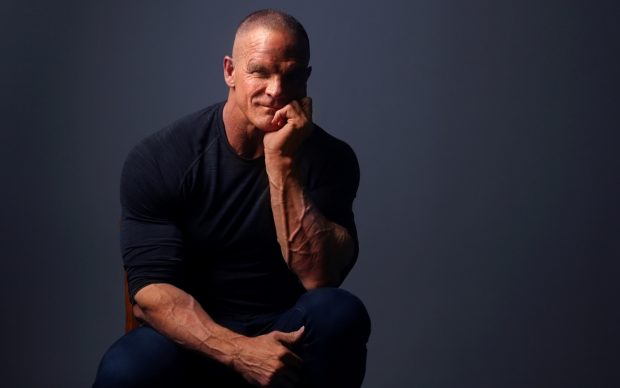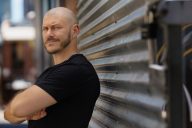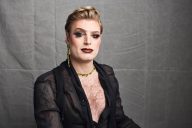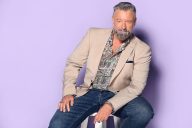It’s been thirty-seven years since Ian Roberts famously came out as an openly gay rugby player. Time has aged the footballer, cum actor and activist, yet he still has his great looks – and an even greater heart! It was my pleasure to interview him. Photography by Christian Scott for DNA Magazine.
To anyone who followed the National Rugby League (NRL) in the 1990’s, Ian Roberts was a household name. From local to international level, he was a champion player, most notably with the Manly Warringah Sea Eagles. Then in 1995 he publicly came out, becoming a name to the entire world. After all, he was the first Australian rugby footballer and high-profile Australian sportsperson to come out, while still playing.
“There are thousands of stories that are a thousand times more inspirational than mine, and a thousand times more tragic.”
Roberts’ life became something of an open book, literally, when in 1996 he released his autobiography Finding Out. He was awarded the Australian Sports Medal, competed on Dancing with the Stars, and has even dabbled in politics through the Australian Labor Party.
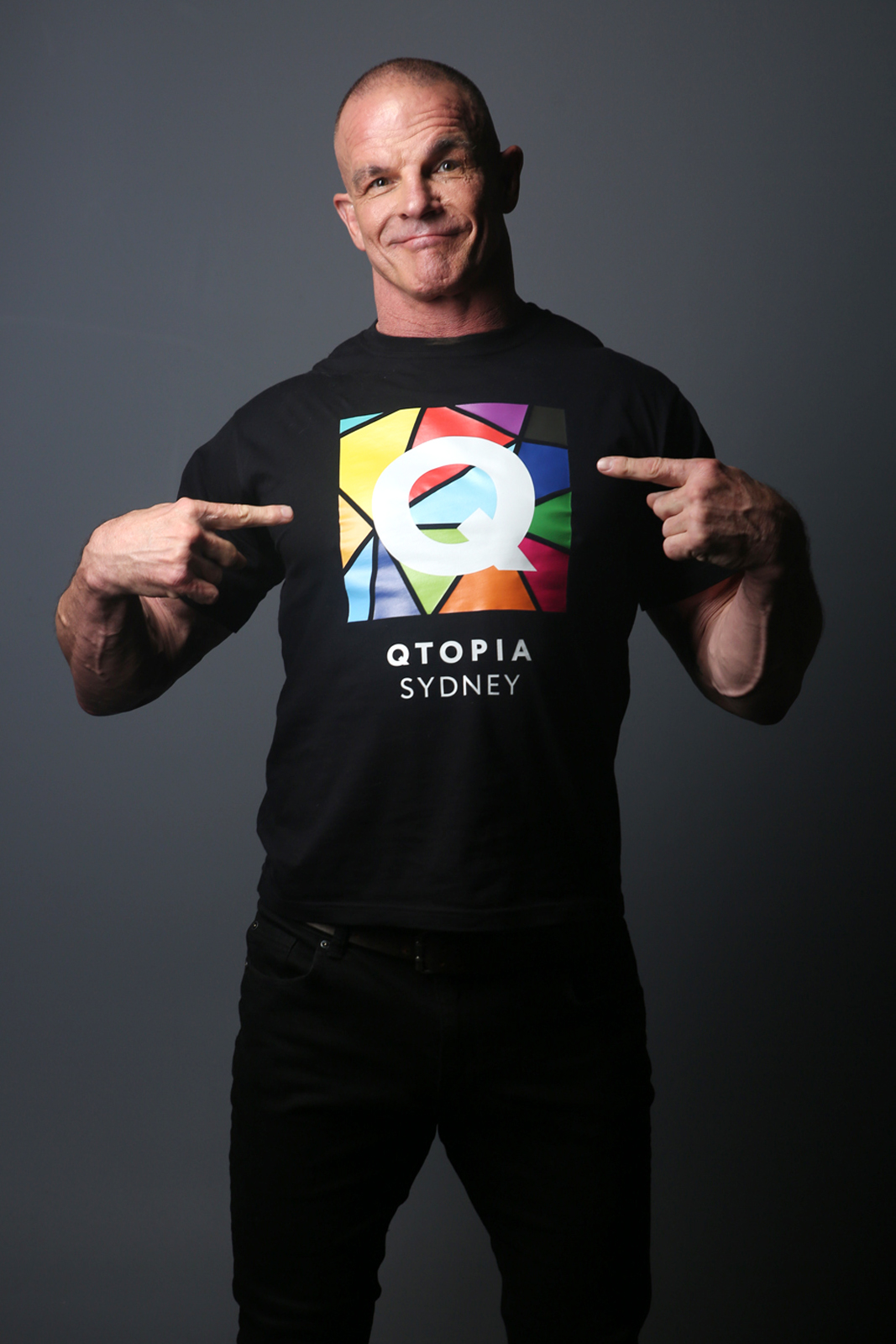
Ian Roberts – Photography by Christian Scott
Never far from the public eye, the one thing Roberts will always be vocal about, his is advocacy for the LGBTIQ+ community, and combating homophobia. But in 2001, Roberts presented another surprise move by enrolling in the prestigious National Institute of Dramatic Art (NIDA). Being accepted into such an esteemed college with an alumni including Judy Davis, Hugo Weaving and Cate Blanchett, is nothing to be sneezed at. Roberts obviously proved more than a pretty face. The boy had talent!
Since graduating, he has worked on 70 plus productions, including Star Wars: Attack of the Clones, Superman Returns, Underbelly, Fantasy Island and Les Norton. He recently finished working alongside Chris Hemsworth on the new Mad Max installment Furiosa, directed by George Miller.
“Saying the word faggot is a vocal way of throwing acid at someone.”
Roberts stands 1.96 metres tall, is fit and as handsome as ever. While his DNA photoshoot shows an exceptional looking man, at 57 of years he is also humble, still putting his greatest focus into supporting the gay community. Then there’s the personal side. He resides in Darlinghurst with his partner Daniel and there two cats Luke and Leia – yes, that’s a Star Wars reference! He enjoys his social life with friends and family also living in Sydney. In fact, it was family that drew him back to Australia.
“I lived in the States, in Los Angeles, for about five years and loved it,” says Roberts.
“But my dad got ill, so I came back to Sydney about seven years ago and sadly he eventually passed away. That’s obviously a very hard thing to go through, and I decided to stay to support my mum. I’ve got a brother and two sisters, but I just felt I had a responsibility toward my mother, and it’s all worked out very well.”
Like many, family is important to Roberts. Originally born in Chelsea, England, the family migrated to Australia under the Ten Pound Poms program and settled in South Sydney. But the era of Nuclear families surrounded by white picket fences was more storybook than real life.
“I’ve had issues with anxiety for thirty-odd years, and training has always been a relief for me.”
“When I first came out, my mum and dad hated the fact that they had a gay son, which is a familiar story,” says Roberts.
“But before he died, my dad to his credit, said that one of the best things he realised he had in his life, was a gay son. He got to see the world in a totally different perspective and saw the world as it really is. That’s really embracing, and if he hadn’t had a gay son, he would have died the homophobic person he originally was. But then there are some people who just won’t take that step back.”
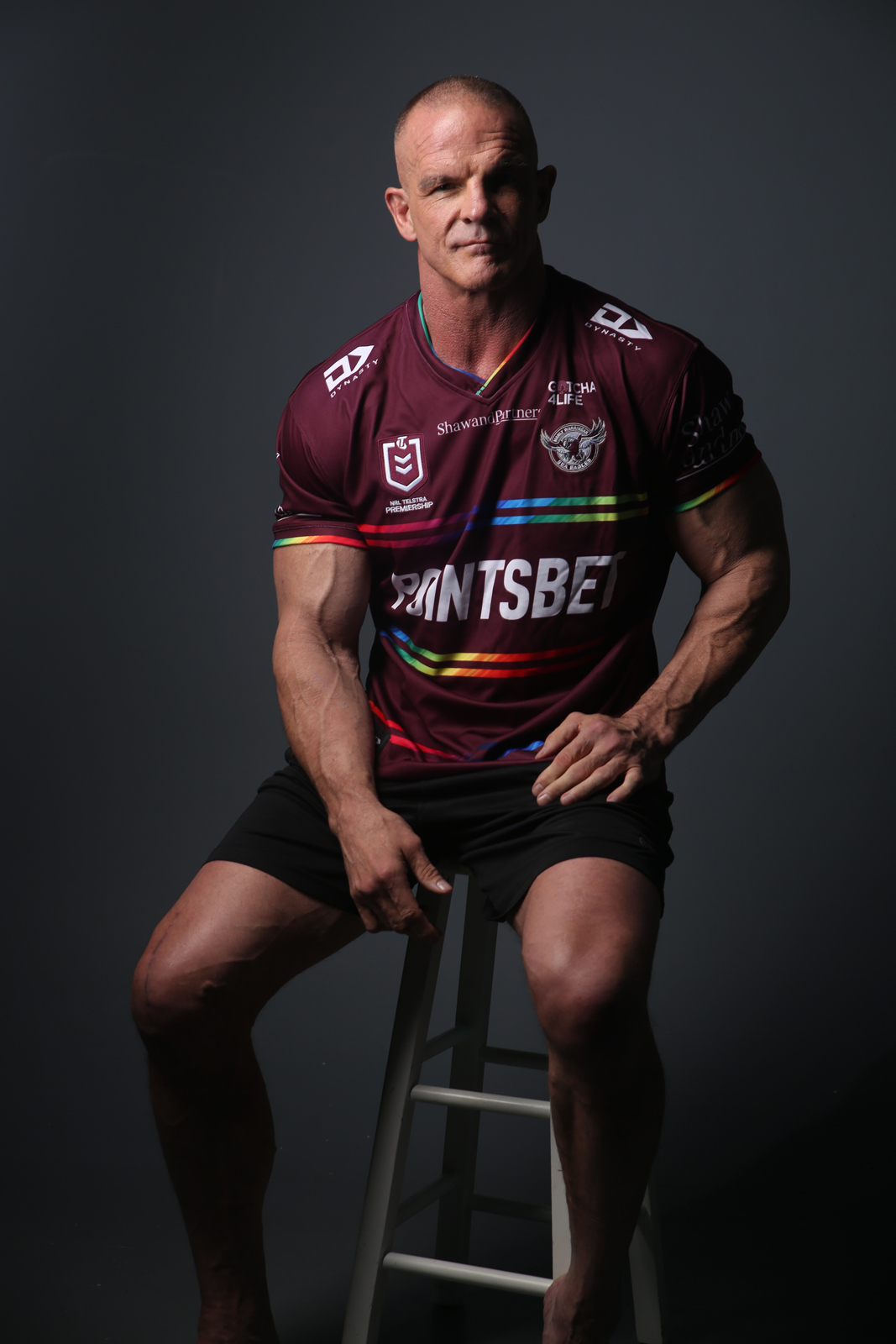
Ian Roberts – Photography by Christian Scott
Roberts has been behind the cause of gay rights and equality since his early days of coming out. He’s been involved with organisations such as Pride in Sport and Proud 2 Play. In some ways it’s the perfect storm for Robert’s career, combining his advocacy with the other passions of sport and acting.
“I’ve been doing an inclusion program for the NRL called Think About It,” he says.
“It’s a great theatre sports program and quite successful. We have four actors who know where the scene is heading, and we involve two people from the audience, which is anywhere from ten to 200 people.
“A story plays out, centering on inclusion and diversity. So, dealing with stuff like misogyny, bullying, toxic masculinity, homophobia and what is a safe space. It’s done mostly with a sense of humour, so that no one is embarrassed or made to feel uncomfortable. The people we get up usually navigate the scene well, and sometimes they don’t. We also roll it out to teams in the NRL, and it’s interesting to see how the players navigate it. It’s a great community building thing and while it has humour, there’s also moving moments as well. It’s not all fun and it can be quite serious. I guess you could say we make them laugh, cry, and think.”
That said, Roberts’ current and greatest passion yet, it’s Qtopia, a Sydney-based LGBTIQ+ not-for-profit organisation, committed to empowerment, inclusivity, celebration, challenge, and education. Set to open before Sydney WorldPride 2023, this anticipated museum will house exhibitions and community stories detailing gay history, culture, art, and contemporary issues. It will be installed inside the old bandstand at Green Park, Darlinghurst, but only temporarily.
“All levels of government, Local, State and Federal, are behind us,” says Roberts.
“The Sydney City Council has been fantastic in providing financial support, but we also need help from the higher levels of government. It can’t be just soft support and a ‘pat on the back’. We really need help in getting a permanent residency and we’re hoping to get the old Darlinghurst Police Station, which currently houses NSW Health offices.”
The police station has such a poignant and emotional history going back to the first Mardi Gras, where the 78’ers were held and sadly abused. However, that in itself marks a significant part of LGBTIQ+ history, and the area of Darlinghurst.
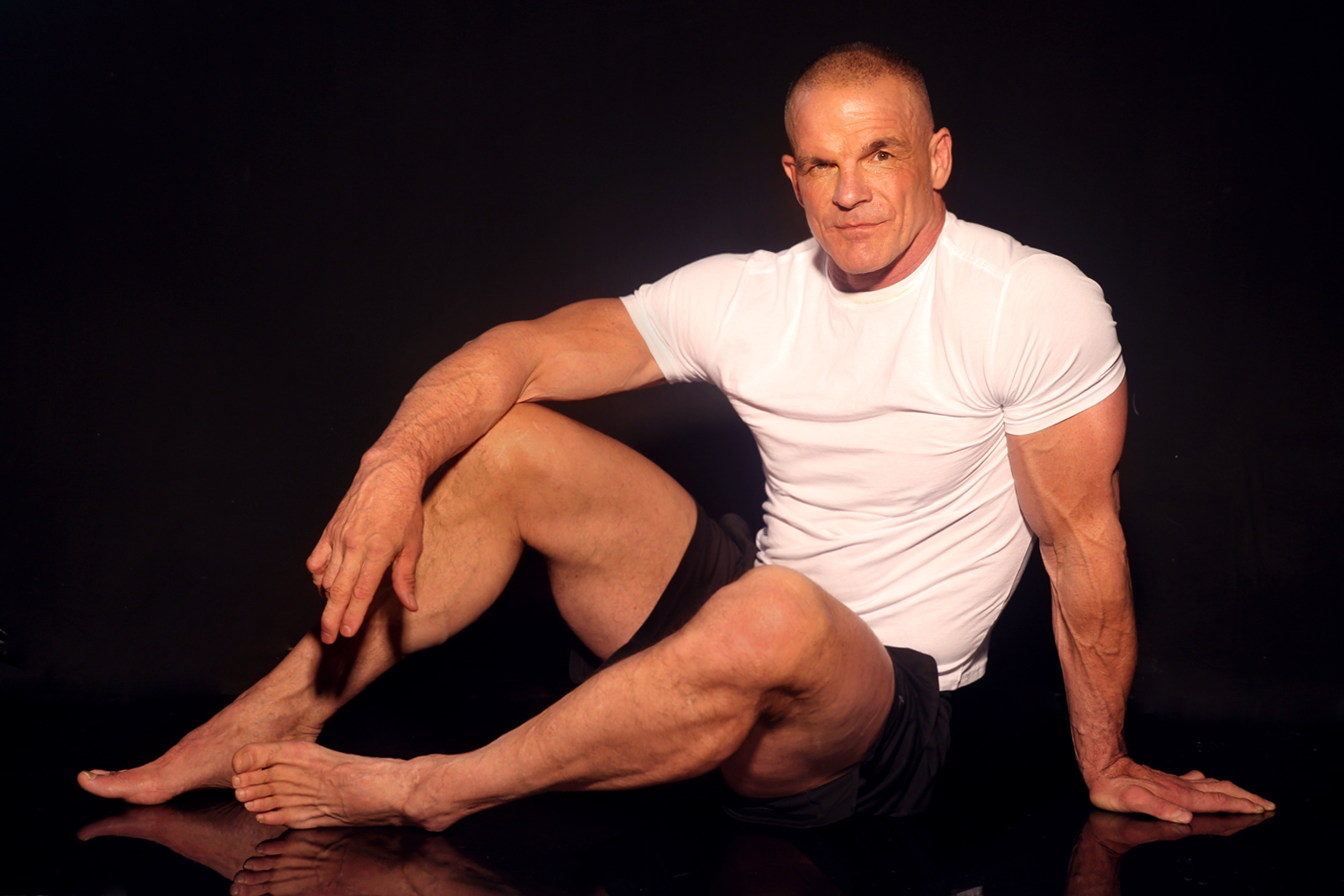
Ian Roberts – Photography by Christian Scott
“The Qtopia team have been working, or rather volunteering, on getting this happening for over eighteen months now,” says Roberts.
“I can’t stress enough, how much we need financial government support. Even if it’s not the police station, there are other local buildings that could be used. We need action!”
Roberts is known for being out and proud, but what drives his determination for Qtopia, and his other philanthropic projects, is the fact that young gay people are still suffering, even dying. Roberts believes now is the time and place to instill change, and it comes down to education.
“We need a destination, just like the wonderful Melbourne Pride Centre, and we have nothing like that in Sydney. But it’s not going to happen unless the community throw their support behind it. The reason I’m big on this is because of the educational programs we intend to roll out, such as for primary schools, high schools, and the corporate world. The Jewish Museum, which is also in Darlinghurst, has really helped us. They’ve been like our surrogate mother because what we’re hoping to achieve is very similar. It’s about changing lives and creating safe spaces. It’s a call to Educate, Celebrate, Remember!”
“The most important thing is that it’s quite literally about saving lives.
I don’t know how people perceive my story as being inspirational or even tragic, but I can promise you there are thousands of stories out there that are a thousand times more inspirational than mine, and a thousand times more tragic. We’re standing on the shoulders of giants. Whatever sense of public profile I now have, and I think I have a pretty good relationship with the public, I use that profile to help with projects like Qtopia, Pride in Sport and Proud to Play, which is another organisation for inclusion within gyms.”
But if there’s another passion that sits close to Roberts’ heart, it’s his acting. Apart from screen work, he also loves theater, including Shakespearian roles such as in King Lear. He even impersonated Mick Jagger at NIDA’s famous semester of rock star presentations.
“Acting is a great thing,” he says.
“I had a great gig when I was in the States working for the Scfy Channel. I’ve been acting for twenty-odd years now and if I had to survive on my acting gigs alone, I’d go pretty hungry, but that’s just the nature of the beast. It’s absolutely, still my love and passion. Acting brings out the child in me, and it’s wonderful being on set, but there’s a lot of work involved, and I don’t think people appreciate how much there is in fleshing our characters and using your own creativity.”
“It was one of the only times as an artist that I thought, “Fuck! I’ve nailed it!”
Having recently completed work on the new Mad Max installment, Furiosa, Roberts continues to not only hone his artistic skills, but to also establish inspirational connections along the way, whether directors, writers, actors or simply those in the crew. Such was the case on Mr Inbetween, the Australian black comedy-crime drama, where he played the character of Graham.
“Scott Ryan the writer and lead actor took a chance on me,” says Roberts.
“So did the director Nash Edgerton who also auditioned me. I went in aiming for the bodyguard character, but it was wonderful that he saw something else in me. It was one of the only times as an artist that I thought, “Fuck! I’ve nailed it!”
Roberts has similar respect for the industry peers he’s worked with, including Russell Crowe, Cate Blanchett and George Miller, the director of Furiosa.
“George Miller is such a sweetheart. Working with him was the most incredible experience. He absolutely listens to everyone, all the cast and crew, including suggestions and doesn’t mind changing the script if someone has a better idea. And if a suggestion doesn’t work, he’ll explain why and never dismisses anyone. He’s also literally a genius!”
On the topic of Mad Max, Roberts also had the experience of working with music legend Tina Turner, during her time famously promoting the NRL.
“I love Tina!” he says.
“I met her after the What’s Love Got to Do with It? premiere. I remember her saying she was disappointed that they had left out so much of the violence. But I thought to myself “It was pretty violent!” She’s such a wonderful lady and good person. She’s very gay friendly, in fact I don’t think anyone at that level in the industry cannot be gay friendly.”
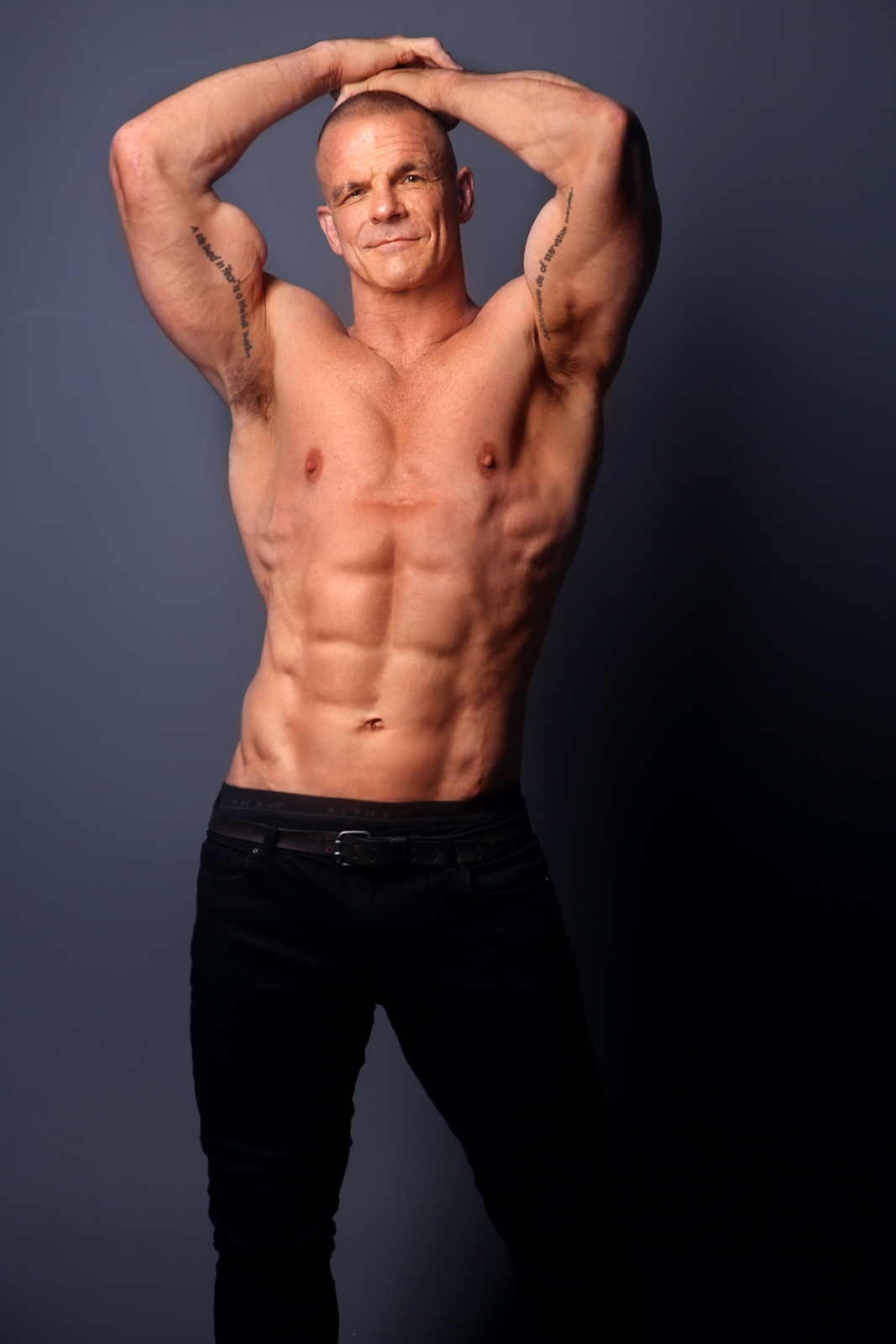
Ian Roberts – Photography by Christian Scott
Working with A-list actors has become a part of Roberts’ working life. The Furiosa cast alone includes Chris Hemsworth, Tom Burke and Anya Taylor-Joy. But when first auditioning for NIDA back in 2000, the future graduate never dreamed that studying for an acting degree would also open other doors.
“I went to NIDA as a 36-year-old and mate, it was the best learning experience of my life! I learnt to read and write again. The thing is, when I was growing up, dyslexia wasn’t a thing. You were basically just seen as dumb. But now they have a diagnosis. I’ll never forget being terrified as an eight-year-old, being asked to stand up and read in class. I’d throw a tantrum and run off, making it about something else. Education was never really valued when I was a kid. My family were very working-class and for me, school was almost like a substitute childminding service. It’s horrible to say, but the intention was that me and my brother would be tradesmen and my sisters’ secretaries. That’s the way they used to think. My dad was a truck driver most of his life and mum was a cleaner and they were hard-working people, but there was no aspiration to educate. When I got my degree at NIDA, I was the first person in the family to get a higher educational certificate.”
In his life thus far, Roberts has faced rugby fame, coming out, sexual abuse, brain injury, court testimonies, politics and even being runner up (to Tom Williams) in Dancing with the Stars. But there is no subject he is more passionate about than the fight for LGBTIQ+ equality.
“It’s not just about being non-homophobic, we need to be anti-homophobic,” says Roberts.
“We’ve moved past being passive about it, and we need to have procedures and laws in place. It’s not acceptable for someone to just say “I’m not homophobic”. For instance, the policies of a corporation should indicate that it’s anti-homophobic. It’s not just about being nice, but actually stating you are ‘anti’.”
“When I was growing up, dyslexia wasn’t a thing. You were basically just seen as dumb.”
Earlier this year NRL Warriors footballer Marcelo Montoya received a four-game suspension for a homophobic slur to North Queensland opponent Kyle Feldt. Montoya pleaded guilty and apologised, saying he was not a homophobe and that gays in the community are valued.
“I honestly believe that Marcelo was sorry,” says Roberts.
“I heard his apology and I believed it was heartfelt and regretful. As for the word ‘faggot’, people don’t say that word, they spit it! It feels like it’s stabbing someone. There’s no nice way of saying that word, and people still use it to demean, weaken and damage your masculinity. It’s like a vocal way of throwing acid at someone. We like to think that we’ve come a long way, but I’d be hesitant to think how far we have come. There are still issues with it.”
There’s also the topic of footballers coming out, which we all know has been few and far between. Only a handful have followed in Robert’s footsteps, such as Josh Cavallo (Soccer), Andy Brennan (Soccer) and Jason Ball (AFL). They’re statistically there, but obviously holding back.
“I know that world,” says Roberts.
“We shouldn’t get on that wagon about how it’s time more people came out. People need to feel safe and secure and if they’re not feeling that way, which is obviously how these men are, then we must ask ourselves why. That’s where organisations like Pride in Sport and Proud to Play are so fundamentally important in creating a safe space. The same with inclusion and diversity programs like Think About It, where people learn about a safe space. Many don’t understand what a saft space actually is, and what is a safe space for you or me is vastly different to someone who has a disability or someone African American, or even an older person. That’s why I love these programs, because they ask people to step outside the box they’re in, and to put themselves in other’s shoes. We have to keep poking the bear!”
As for Robert’s personal life, he’s been in a relationship for the past seventeen years with partner Daniel.
“Dan is a champion and the best thing to ever happen to me,” he says.
“He’s definitely the brains of this organisation! He’s the major and I’m good at lifting heavy things. He’s so calm and I get amazed at how together he is. Dan’s been so good for me and helped to educate with my literacy. He teaches kids and when I still have problems with certain letters or words, he’s there to help and there’s never any feeling of being inadequate.”
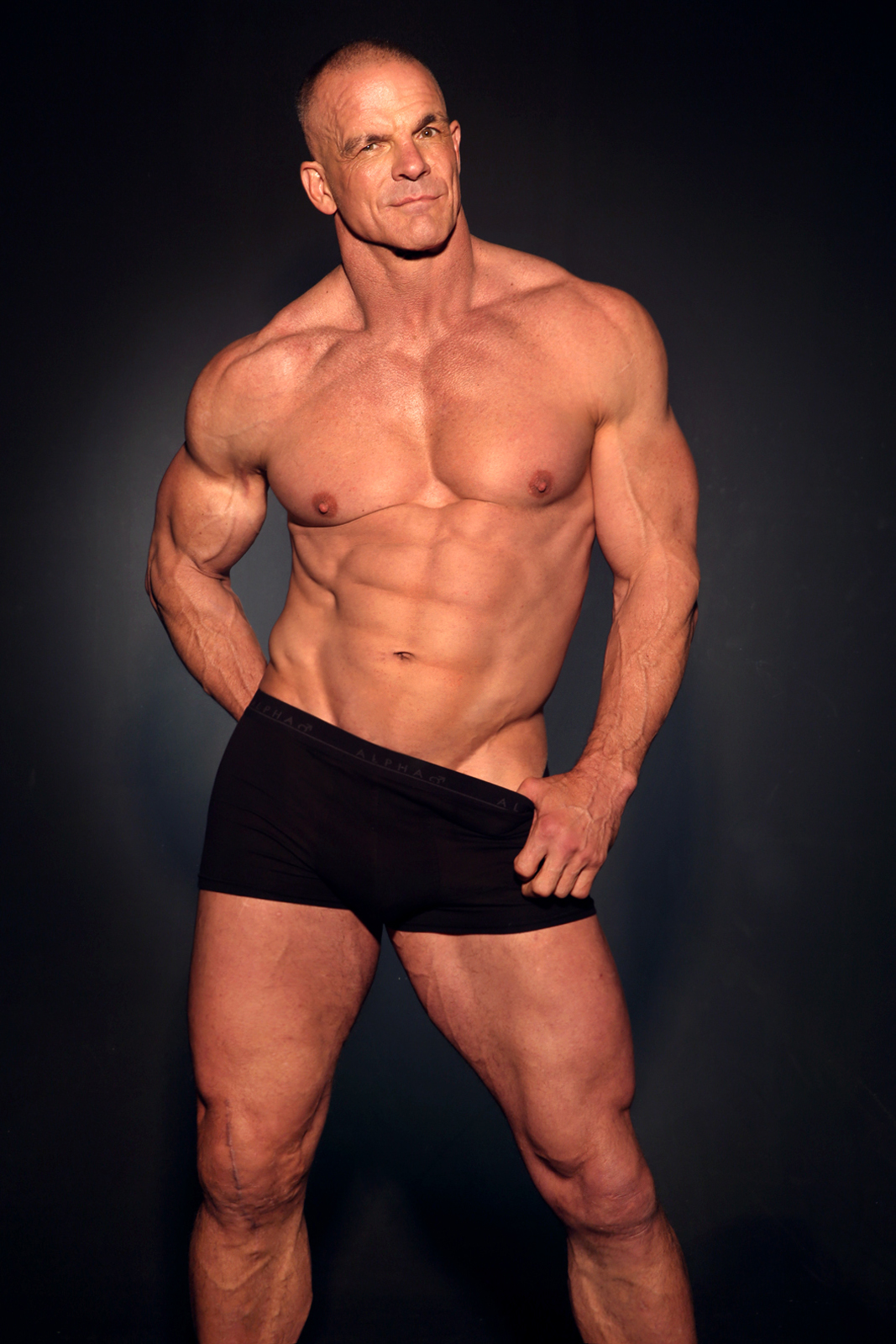
Ian Roberts – Photography by Christian Scott
Obviously from our DNA photoshoot, Roberts has maintained his incredible physique and trademark chiseled looks – not a bad feat for a 57-year-old, who’s also persevered with injuries. Nonetheless, many still see that handsome rugby stud from the Nineties.
“It’s flattering,” says Roberts.
“It’s not just about being non-homophobic, we need to be anti-homophobic.”
“I accept that I’m in pretty good shape and I look after myself, but I’ve had to do a lot of work with that. As an actor I also have to raise the bar a bit. But the reason I keep myself fit is for my mental health. I’ve had issues with anxiety for thirty-odd years and training has always been a relief for me. You’d like to think there’s some sort of future credit from all the past work, but there’s fucking not! Age humbles us all! Father Time is always knocking on the door, and you have to stay on top of it. I can’t do free weights anymore because of issues with my joints. I use machines as much as I can now because they have safety and support. Twelve months ago, I had a knee replacement and I have a huge debilitating groin issue, which has been one of the worst injuries of my life. But I can’t complain, it all comes with age, and I just have to get on with it.”
Back in those early days when Roberts first came out, a biopic was tossed around, with Aaron Jeffery (Wentworth) planned for the role, but the movie never eventuated. Obviously, the time wasn’t right. But given the man’s life thus far, the story of Ian Roberts on the big screen would now be epic. From his rugby days and coming out to acting and his ongoing advocacy, life for Ian Roberts is never dull. He’s a survivor, lover, friend, peaceful warrior, and inspiration to us all.
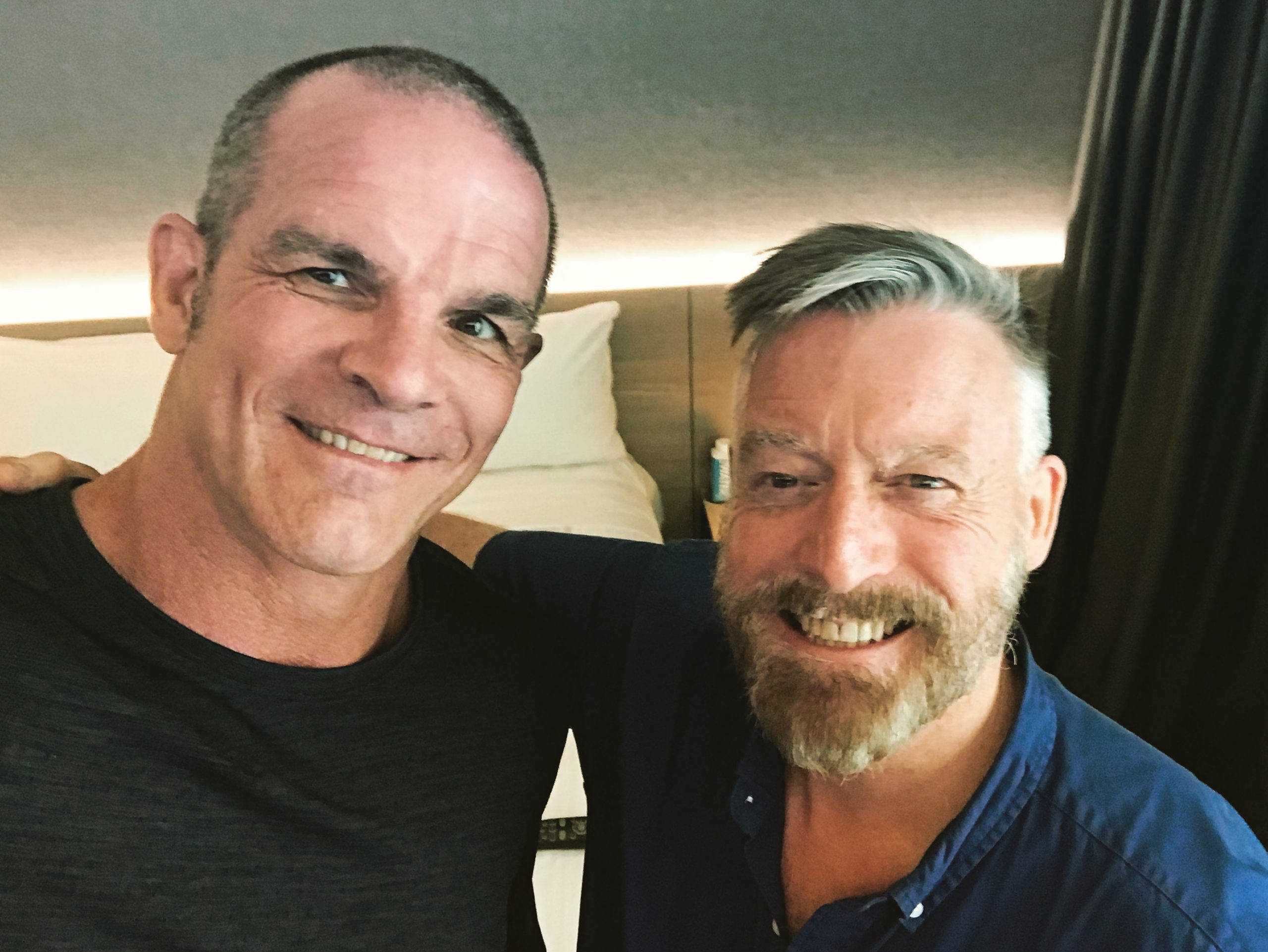
Myself and Ian Roberts

